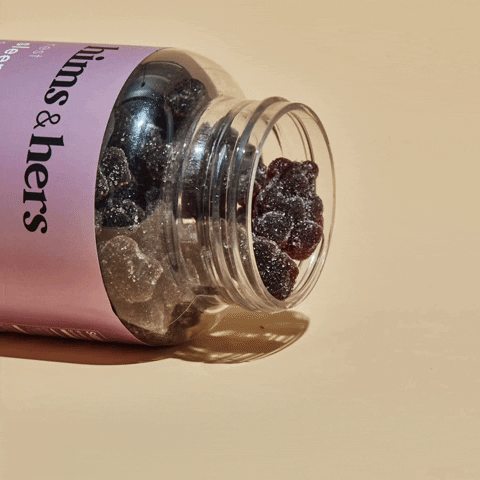- The Wellness Connoisseur
- Posts
- Magnesium vs. Melatonin: The Ultimate Guide for Better 😴 😴
Magnesium vs. Melatonin: The Ultimate Guide for Better 😴 😴
Unlock the secrets to better sleep and enhanced wellness by discovering the key differences between these natural supplements.

Magnesium vs. Melatonin: The Ultimate Guide for Better 😴 😴

In the sea of health and wellness trends, we sift through the noise to bring you clarity. Each week, The Wellness Connoisseur curates valuable insights on a trending health topic to spark inspiration for your personal wellness journey.
Got Sleep? 😴
Hey there, sleep enthusiasts! The sleep supplement market has boomed as more people seek solutions for sleep issues. While prescription meds exist, they often bring side effects and dependency risks, driving interest in natural alternatives. In today’s newsletter, I’m diving into two well-researched natural sleep aids: Magnesium and Melatonin.
Magnesium
The Types
If you were to search for magnesium, you'd discover there are over ten different types available, each offering unique benefits. However, when it comes to promoting better sleep, Magnesium Glycinate stands out as the best option.
Additionally, selecting a supplement with Vitamin B6 can boost magnesium absorption and support melatonin production, elevating the overall effectiveness for achieving deep sleep.
The Benefits
Better Sleep: Studies show Magnesium can improve sleep quality, especially if you have insomnia. It helps regulate Melatonin and reduces stress, promoting deeper, more restorative sleep.
Muscle Relaxation: Magnesium is like a natural relaxer for your muscles, easing tension and helping you chill out. If you’re low on magnesium, cramps and spasms can crash the party.
Calm Nerves: It helps keep your nervous system in check, reducing anxiety and prepping your body for sleep.
The Drawbacks
Time to See Effects: Benefits may take time, especially if your body’s magnesium levels are very low.
Digestive Issues: High doses might cause digestive discomfort.
Melatonin
The Benefits
Regulates Sleep-Wake Cycle: Melatonin, a hormone naturally produced by your brain in response to darkness, signals that it's time to sleep, aligning your sleep-wake cycle with the natural rhythm of day and night.
Helps You Fall Asleep: Whether it’s jet lag, shift work, or just a rough night, melatonin can help you fall asleep faster and stay asleep.
The Drawbacks
Not for Long-Term Use: May disrupt natural melatonin production with prolonged use.
Side Effects: Potential for vivid dreams or grogginess the next day.
The Dosing Guide
Magnesium:
General Recommendation: 200 - 400 mg per night is a typical dose for improving sleep quality. Please reach out to your health care provider for dosing recommendations.
Best Time to Take: About 1-2 hours before bed.
Tip: Start with a lower dose to assess tolerance, especially if you’re new to magnesium supplements.
Melatonin:
General Recommendation: 0.5 - 5 mg, depending on the severity of your sleep issue. Please reach out to your health care provider for dosing recommendations.
Best Time to Take: 30-60 minutes before bed.
Tip: Use the lowest effective dose to minimize potential side effects, and avoid long-term use unless advised by a healthcare professional.
Summary
Magnesium and Melatonin both have their strengths when it comes to better sleep. Magnesium is the top pick (and my personal favorite) for long-term sleep quality and overall relaxation, making it the preferred choice for those looking to build a consistent, restorative sleep routine. Melatonin, on the other hand, shines as a quick-fix solution for jet lag and disrupted sleep schedules.
For most, Magnesium’s calming and broad health benefits make it the go-to option for sustainable, restful nights. But if you need fast relief, melatonin is there to help you drift off quickly.
Enjoying The Wellness Connoisseur? Share the love by forwarding this email to a friend who values health and wellness. They can subscribe here!
Disclaimer: The content provided in this newsletter is for informational purposes only and does not constitute medical advice. Always consult with a qualified healthcare professional before making any changes to your health or wellness regimen. The information provided is not intended to diagnose, treat, cure, or prevent any disease.